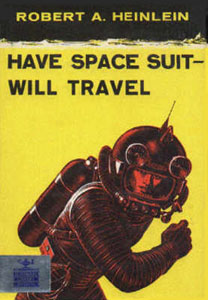 Note from Art: there are a remarkable number of leadership and management lessons as well as a fierce debate about importance and economics that all swirl around the space program. Just for today, let’s put those aside and remember and wonder and give thanks to those who served and to remember those who perished. The debates can continue another day.
Note from Art: there are a remarkable number of leadership and management lessons as well as a fierce debate about importance and economics that all swirl around the space program. Just for today, let’s put those aside and remember and wonder and give thanks to those who served and to remember those who perished. The debates can continue another day.
The last Space Shuttle of this era has returned and the program is officially grounded for good.
For those of us who lived through the period from Apollo to Atlantis, it’s a bittersweet day filled with memories of fascination, pride and accomplishment, as well as memories of sadness and loss.
My fascination with the space program started as a young child in the 60’s. I remember sitting on the sofa eating a popsicle the day after having my tonsils removed, and watching grainy black and white pictures of Neil Armstrong taking that first step on to the lunar surface. I remember Walter Cronkite choking up and I distinctly recall a sense of wonder and amazement at the accomplishment. Even at my young age, the moon landings seemed like a welcome reprieve from news of the Vietnam war and the daily fatality count.
Time stopped while we waited for news of the Apollo 13 astronauts, and to this day, I cannot think about that event (or watch the movie) without doing my best imitation of Walter Cronkite and choking up. Their return felt miraculous then…and more so now, given our knowledge of the challenges that the NASA community faced and conquered.
Apollo gave way to silence for a few years, and inspired by our success in space, I hungrily devoured much of the content in the world of science fiction. There were big dreams of going to Mars or returning to the moon someday…perhaps people living on the moon, and the science fiction content fueled the dreams that were openly discussed in newspapers and on television.
After a few years of silence, Apollo gave way to the Space Shuttle program, and while it did not have the cool end destination, it was still fascinating. It was progress and we were putting people back in space, running experiments and looking forward. In our minds at the time, it was getting us one step closer to Mars.
Watching Columbia take off was exciting, but it paled in comparison to what was then to me a jaw dropping feat of flying this craft into space and then landing it like an airplane back here in the U.S. Yes, I know…old hat to many of you who have come to expect this as “normal” for the past 30 years. However, if you share the same demographics, you likely recall how purely awe inspiring it was (and still is) to see this spaceship land safely back on earth. (Here’s a clip of the first launch and landing of Columbia.)
Challenger broke our hearts. It seems as if every generation has a “moment.” My parents had JFK, all of us have 9/11, however, Challenger was our “moment.” Ask someone who was older than about 15 where they were when they heard the news about Challenger and they will be able to tell you in detail. Most of us old enough to remember the event, remember President Reagan’s speech to the nation following the loss of the Challenger 7. Here are the words at the end that are burned into our minds:
“The crew of the space shuttle Challenger honored us by the manner in which they lived their lives. We will never forget them, nor the last time we saw them, this morning, as they prepared for their journey and waved goodbye and slipped the surly bonds of earth to touch the face of God.” (Here’s a link to the video and text)
Fast forward a generation and the craft that got us started, Columbia, disintegrated upon reentry, saddening us all and reminding us once again of our frailty in the face of space exploration.
Nearly another decade has passed, the International Space Station is operational and the Shuttle Program is at an end. There’s been a certain “Ho Hum” feeling about the International Space Station, and whether it’s age or time…or it’s just boring, it doesn’t have that seem feeling of forward progress. Let’s hope that feeling is wrong. Perhaps it will serve as a stepping stone.
The hope of space exploration is often drowned in the realities of economics, and while work continues, things are changing. Perhaps the next step for developing and advancing in space will come through private commercial ventures or cooperation between various countries around the globe. It’s unlikely that one country and its taxpayers can bear the burden, especially because so many of the returns are somewhere down the road in an uncertain future.
Today, instead of debating merit and economics, it’s appropriate to take a moment and be thankful for the opportunity to have witnessed some remarkable accomplishments that have stoked the dreams of humanity. It’s also time to remember those who gave their all in pursuit of our collective dreams.
Here’s to the future of space development and exploration, in whatever form it takes. May future journeys and successes reflect well on the sacrifices of the Apollo 1, Challenger and Columbia astronauts.
